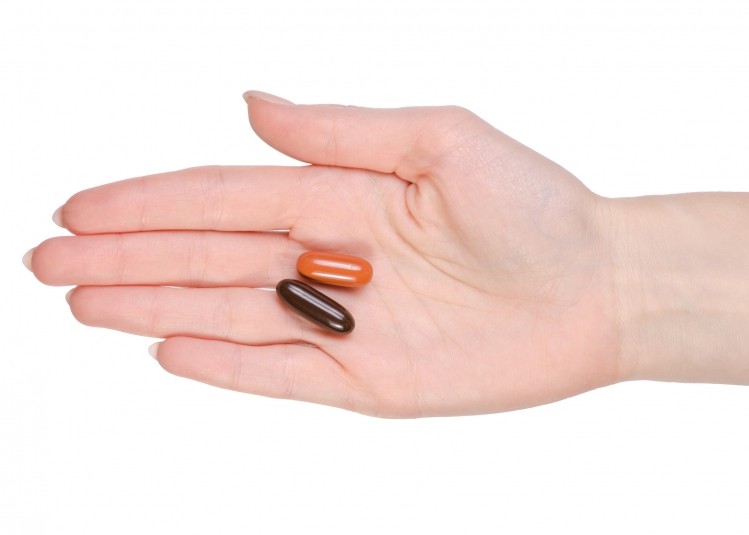From the Editor's Desk
The long lasting benefits of supplements & the fascinating study that nobody is talking about

Scientists from Linköping University in Sweden studied 443 healthy elderly participants consuming either placebo or supplements of CoQ10 (200 mg/day) plus selenium (200 micrograms/day) for four years. After an average of 12 years of study after the end of the intervention, data for 181 people indicated that the supplementation group had a 40% lower cardiovascular (CV) mortality risk than people in the placebo group (Alehagen et al. PLoS One, 2018; 13(4): e0193120).
Not only that, but the magnitude of these benefits is getting larger: Four years of supplementation actually set the supplemented group down a different life and health path. This is fascinating and powerful. Our recent article about the Linköping study can be read HERE.
So why are we not talking about this more?
Results that cannot be ignored?
At NutraIngredients-USA, we cover many studies that support the benefits of dietary supplements, and it is rare that such studies also get covered by the mainstream media. Those that do are often the result of a press release, either from a journal or the main academic institution (which makes sense because press releases make life easier for many journalists).
As far as I know, no such press release has been issued regarding this most recent study, and so we haven’t seen much coverage.
But it is not the lack of media attention that has surprised me – it’s the lack of industry chatter about this.
This isn’t the first time we reported on data from this study. In 2012, I reported on this study’s 10-year evaluation (four years of intervention and 6 years of follow-up), and representatives from both the Natural Products Association (NPA) and the Council for Responsible Nutrition (CRN) welcomed the findings.:“[These are] results that cannot be ignored,” I was told at the time.
But these results have largely been ignored by many in the industry over the years, and the most recent paper didn’t seem to get the attention it deserved. For an industry that spends a good amount of time responding to negativity, this is precisely the kind of study we should be talking about, and loudly!
Silencing the critics
Critics of dietary supplements often make two arguments: 1. People consuming a balanced diet don’t need dietary supplements, and 2. Don’t waste your money on them because dietary supplements don’t actually work anyway or if they do work the high doses may be harmful. . (This always brings a wry smile to my face because if the “they don’t work” argument gets struck down, people resort to the “they work a little too well” one, but I digress.)
Now we have a study that showed that, not only did the supplements lead to significant improvements during the four-year intervention period, such benefits were still evident 12 years after the end of the randomized clinical trial!
It should also be stressed that these were well-characterized supplements, the participants were healthy seniors, we have over a decade of data on them, and the statistics show the effects were not marginal – they were the kind of p values that many researchers can only dream about.
Dr Mark Miller, principal of Kaiviti Consulting, LLC, was one of the few to bring attention to this study with a commentary on LinkedIn. We asked him for a comment and he told us: “The effects are too powerful for simple nutrient replacement. I think we need to be creative here and if I was to guess I think there is a major reset of the drivers for disease and health.
“So what control mechanism has such long lasting effects? I think the best candidate is epigenetics. It is well-known that altering our genetic software has long-term implications on health. Specifically, it is most likely epigenetic regulation of oxidative stress, inflammation and mitochondrial function.”
Spread the word!
Perhaps the only downside is the location: Sweden has low selenium intakes, and the mean selenium level for the study population was 67 micrograms per liter of plasma, which is below the reported 90 to 140 microgram/L concentration needed for “full expression of the extracellular selenoprotein P”. However, selenium levels in the US are not low, and mean dietary selenium intakes in the US ranging from 93 micrograms in women to 134 micrograms in men. But were the effects from selenium alone, or a synergism between selenium and CoQ10? We do not know if the results would be replicated in an American population.
Despite this, this data is powerful: This is a strong study that strengthens the body of science around dietary supplements.
As an industry, we need to talk about this, and studies such as the omega-3 blood pressure meta-analysis, and data from PHS II, and on and on.
We have the tools to spread the word – let’s spread it!
Stephen Daniells is the Editor-in-Chief, North and South America of William Reed Business Media, which includes the market-leading publications NutraIngredients-USA and FoodNavigator-USA. He obtained a PhD in chemistry from the Queen’s University of Belfast, Northern Ireland, and held post-doctoral research positions in The Netherlands and France before taking the leap into journalism in 2005. In 2015, he received the American Herbal Products Association’s Special Award for Journalistic Excellence. Stephen also acts as the editorial consultant and chair of William Reed’s Probiota Americas event.
Excellence in journalism
This article, along with No BBC, probiotics are not 'quite useless', were recognized at the 2019 AZBEE awards from the American Society of Business Publication Editors (ASBPE). The articles were awarded GOLD in the Original Web Commentary category for the Upper Midwest region.



















